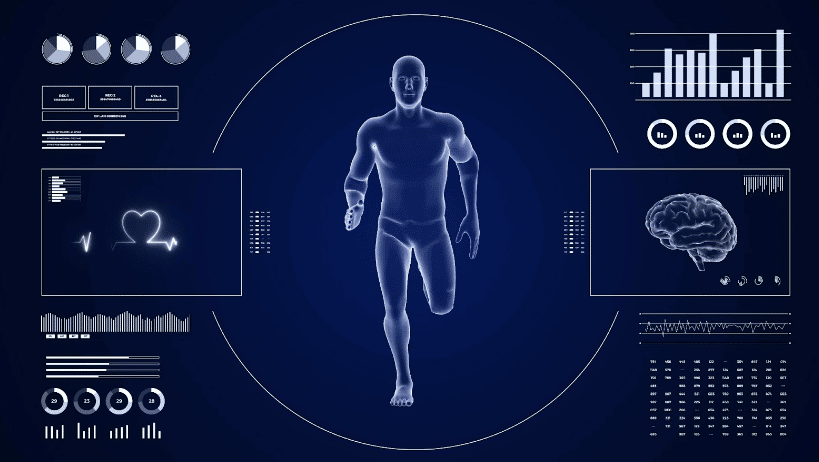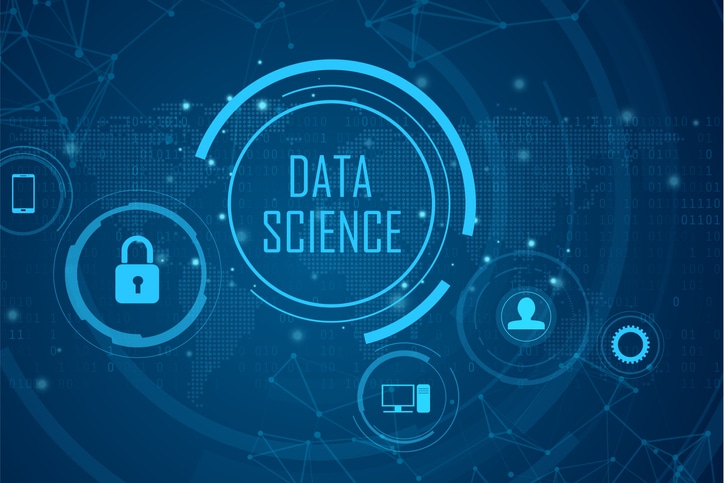Data Scientist is one of the most in-demand jobs in the tech industry and a very lucrative career option for those who want to step into the world of Big Data. Data scientists are expected to be constantly learning and evolving in their craft and they use numbers and information to make real-world decisions and translate business requirements. Organizations are eagerly scouting for talented recruits, and jobs are expected to grow by up to 16% from 2018 to 2028 according to the Bureau of Labor Statistics (BLS).
What makes a good data scientist? Most employers and recruiters prioritize skills testing when searching for the perfect candidate. Successful data scientists also have qualities that a skill test alone cannot identify. They have a range of skills and qualities you can’t learn from a book. So, what are they, and how do you identify them?
Such is the pressure to make the right hire that firms and recruiters are increasingly turning to Artificial Intelligence (AI) and machine learning (ML) based solutions. According to The Guardian, an ML-powered app Headstart is being used by a number of top companies, including BP, Expedia, and Vodafone to help them find the best candidates. Headstart screens candidates and matches them with suitable roles using a series of predictive and contextual algorithms.
In this blog, you will come across some essential skills and qualities a Data Scientist must have.
TOP DATA SCIENCE SKILLS
Non-technical skills
- Data Intuition
- Iterative Design
- Statistical Thinking
- Hacker’s Spirit
- Creativity
- Communication
- Data-driven Decision Making
- Being Organized
- Team Work
- Intellectual Curiosity & Passion
Technical Skills
- Programming
- Quantitative Analysis
- Math & Stats Knowledge
- Visualization Skills
- Linear Algebra & Multivariate Analysis
MS Excel is one of the most prominent tools used by Data Scientists across the world. Learn Excel for Data Science for free on Great Learning Academy.
5 Steps to Growing Your Data Science Skills Quickly
Step 1 – Take up a certificate course
The hardest part about transitioning from an aspiring data scientist to a full-blown six-figure professional is mastering the skills required to get there. If you’re trying to break into the industry, the best way to get started is to familiarize yourself with the latest industry tools and practices.
You can check out the online data science programs designed for learners who want to pursue a career in data science and upskill.
There are numerous free courses available online, some of them are:
- Data science basics
- Python For Data Science
- R For Data Science
- Statistics for data science
- Probability for Data Science
Step 2 – Read more than you speak
One of the fastest ways to improve your data scientist skills is to read and study academic papers actively. There are many educational resources online and free ebooks that students can go through to grasp the basics. LinkedIn is a great website where learners can connect with data science experts and stay in touch with the latest industry trends.
Here are a few books we recommend for improving data scientist skills and thinking:
- Think Stats: Allen B. Downey
- Naked Statistics: Stripping the Dread from the Data
- Python Data Science Handbook: Essential Tools for Working with Data, 1st Edition
- Deep Learning (Adaptive Computation and Machine Learning Series) by Ian Goodfellow, Yoshua Bengio and Aaron Courville
Step 3 – Be An Active Member of the Data Science Community
It’s important to understand that connections matter. When it comes to career growth, learning about key influencers and keeping an eye out for professionals will bring numerous opportunities for networking and referrals. Having a hard time finding the perfect gig?
You might just get that offer by meeting up with a company official at a Data Science event or conference. The Data Science career trajectory is not linear. You’ll find yourself switching from Data Scientist to Data Analyst and other popular machine learning designations the more you grow your skills and acquire different specializations. Study the top data science blogs and read articles on Medium, GreatLearning, KDNuggets, and similar websites. If you find a concept confusing, studying various blogs will give you a fresh perspective and understanding of the subject matter.
For an added extra challenge, you can write blogs on data science topics and start your own blog. It’s a great way to revisit old concepts and check if you have truly mastered your new data scientist skills. Starting your own blog will show recruiters how serious you are about your career and demonstrate the initiatives you take for personal learning.
Don’t neglect to be an active member of the data science community. Show up at data science events in your area and make in-person appearances to connect with peers. It’s just as important to get involved with the community than passively learn from the sidelines if you’re serious about making a mark.
Step 4 – Participate in Open Source Projects
Become a part of an open-source project that revolves around your hobbies and interests as a data scientist. You’ll find a majority of opportunities lurking on GitHub and one of the best ways to land new jobs is by making contributions to these. If you want to delve deeper into Big Data, explore and experiment, and continue growing your skills, participating in open-source data science projects is the secret sauce to all that.
Newcomers can gain a significant advantage over the rest of the competition by adding open-source projects to their portfolios. You can also scrape websites and build your own datasets in your free time when you’re not busy contributing to open-source projects.
Step 5 – Master Technical Skills
- Statistical analysis and computing
- Machine Learning
- Deep Learning
- Processing large data sets
- Data Visualization
- Data Wrangling
- Mathematics
- Programming
- Statistics
- Big Data
Technical skills are specialized tools, programming knowledge, and industry techniques used by data scientists to design use-cases for business products and services. Usually, most data scientists improve skills related to data visualizations, statistical analysis, and learn how to apply Machine Learning and Artificial Intelligence models to business requirements. Having a brief understanding of software engineering principles is a must along with being able to correctly collect, organize, and present raw data to non-technical experts.
The top five tools used by professional data scientists are R, Tableau, Python, SQL, and Hadoop and learners should have a solid grasp of these. Strong knowledge of linear algebra and multivariable calculus is also recommended for those who are serious about improving their data science skills. Understanding the basics of statistical thinking will help aspirants ask the right questions when modeling and designing products for clients. In addition, data scientists require a strong foundation in mathematics, linear regression, and various statistical functions in order to write code and make Machine Learning models do their jobs effectively. Artificial Intelligence and Deep Learning Neural Networks are at the forefront of Machine Learning innovations in the industry.
Top 10 Non-technical Data Science Skills To Have
1. Data Intuition
Just because a candidate has a data science degree or a data science certification doesn’t mean they have good data intuition. Data scientists with this quality are excellent at identifying patterns within sets of structured and unstructured data. The role of data scientists is constantly evolving and they must now understand the needs of customers as well as the needs of their organization. A good interview question that will help you uncover a candidate’s ability to identify data patterns is to ask them to create a quick data visualization. Let them choose whichever programming language they feel comfortable with such as Python or R, and ask them to demonstrate their ability to pick out a key pattern in a small dataset.
2. Iterative Design
Data scientists need to be able to work as part of a much larger team in order to deliver results. In the world of big data, it’s the data scientists who ask the questions and the data analysts who provide answers. Data scientists then take these results and draw conclusions or insights before deciding upon the next step. This iterative design process is crucial to the success of any IT department, yet not all candidates will have the ability to work in this way.
While it’s essential to choose a candidate with a data science certification from a reputable data science course in India or elsewhere, you also need someone who enjoys the iterative development process. During the phone screening interview or the technical interview, ask candidates to explain the last project they worked on in detail. How did they address obstacles along the way? How did they work to make improvements? The answers to these questions will help reveal whether they are able to improve products through the process of iterative design.
3. Statistical Thinking
A skills-based technical interview will tell you whether a candidate has a solid background in data science and big data analytics and should indicate whether they are good at statistical thinking. However, it’s up to the recruiter to check this during the interview stage. While a candidate’s resume may tell you that they have completed a data science course in Hyderabad or Bangalore, it may not give you a good idea of their communication skills. During the interview, ask your candidates how they would resolve a question using statistics. For instance, does the description of every YouTube video contain the word ‘and’? How would they test that? What script would they create? This question will help highlight any candidate’s statistical thinking ability.
Read Also: 5 Non-Technical Skills You Must Have to Become a Data Scientist
4. Hacker’s Spirit
The latest research shows that over 90 percent of data scientists have a Master’s Degree so you can be fairly confident that any candidate who makes it through the screening phase and into the technical interview has a baseline competency in common programming languages such as Python and R. However, while a skills-based assessment will show you candidate’s proficiency in bash/command line, SQL and Java but it won’t tell you how they react to working with new or unfamiliar coding languages. This is known as a ‘hacker’s spirit’: can someone work with unfamiliar codes or formats or even create their own tools when they can’t find a solution?
The best data scientists have this ‘hacker’s spirit’ and a life-long love of learning. They constantly re-train and learn new coding skills on the job. A good interview task to determine whether a candidate has the willingness to learn new skills is to challenge them to explain or write in plain English how an algorithm or query would work in a coding language that is unfamiliar to them. This task gives you an insight into their ability to think, problem-solve and react to new challenges, just as they might expect to face when they work for you. They might not arrive at the correct answer but you can tell whether they have a ‘hacker’s spirit’ and are ready to face the constantly evolving challenges in your workplace.
Read Also: Secrets of a successful Data Scientists
5. Creativity
Creativity is an essential quality for any data science candidate. They may have completed a data science and big data analytics course at a prestigious university but are they able to use their knowledge to solve real-life problems? Data scientists routinely execute database runs and queries, but to be successful, they also need to be able to design new ways of architecting queries. After all, if their results simply answer previously asked questions, what new insights will your organization gain? This is where creativity comes in; can a candidate solve a real-life issue?
The best way to determine this is to give candidates a coding challenge and ask them to speak aloud as they solve it. This will give you chance to see where they have gone wrong and you’ll be able to course-correct them in real-time. This gives you an insight into the quality of their thinking and their ability to develop new solutions to existing problems. Competent data scientists constantly have to design new strategies to work with structured and unstructured data.
6. Communication
One of the most important skills to have is effective business communication. Whether it is understanding the business requirements or the problem at hand, probing stakeholders for more data, or communicating insights, a data scientist needs to be persuasive. “Storytelling,” as the data scientists call it means that analytical solutions are communicated in a clear, concise, and to-the-point manner so that both technical and non-technical people can benefit from it. Data visualization and presentation tools are widely employed by data scientists for their graphic appeal and easy absorption by all teams in the organization. Often underestimated, this is one of the most important skills for the simple reason that all statistical computation is useless if the teams can’t act upon it.
7. Data-driven Decision Making
A data scientist will not conclude, judge, or decide without adequate data. Scientists need to decide their approach to a business problem and several other things like where to look, what tools and techniques to use, and how to visualize and communicate it in the most effective way possible. The most important thing for them is to ask relevant questions, even if they seem far-fetched. Think of it as a child exploring all his surroundings to conclude. A data scientist is pretty much the same.
8. Being Organized
A Data Scientist must know how to be extremely organized. He/She deals with a huge amount of data and must know how to work in a systematic manner. This quality would show how good you are at prioritizing tasks and resolving issues on time. Being organized also helps with time management and ensuring that deadlines are constantly being met.
9. Team Work
Another feather in the cap that data scientists can’t do without is teamwork. While it may seem they can work in isolation, they are deeply involved in the organization at different levels. On one hand, they will have to collaborate with the teams to understand their requirements and gather feedback to reach beneficial solutions, on the other hand, they will have to work with fellow data scientists, data architects, and data engineers to perform their tasks well. The culture in a data-driven organization will never be that of the data science team working in isolation; rather the team will have to inculcate the same characteristics across the organization for the best utilization of insights they draw from various departments.
10. Intellectual Curiosity & Passion
This is a tad-bit cliched but true. Data scientists are passionate about their work and have an inconsolable itch to use data to find patterns and provide solutions to business problems. They often have to work with unstructured data and rarely know the exact steps they need to take to find valuable insights that lead to business growth. Sometimes, they don’t even have a clear problem to work with, just signs that there is something wrong. That’s where their intellectual curiosity guides them to look into areas no one else has looked in. You don’t need to read “How to think like Sherlock,” just ask a data scientist!
Top 5 Technical Data Science Skills To Have
1. Programming
A data scientist will be proficient in one of the programming languages like R, Python, SAS, Hadoop, etc. It is not just about writing code but being comfortable with using different programming environments to analyze data. With the field of data science seeing unprecedented interest and value in businesses around the world, a command of programming languages and the ability to adapt to the changing technology is key to a data scientist’s success. Any hesitation with using programming tools can turn into a deal-breaker for a company relying on your work to accelerate their business growth.
2. Quantitative Analysis
This is what defines the essence of a data scientist’s job. Having a calculated and visceral understanding of a complex environment and its behavior, munging data that is messy and difficult to work with, and creating prototypes and models to test assumptions is part of a data scientist’s profile. Must-know concepts include how to build predictive and regression models, machine learning – supervised and unsupervised learning algorithms, time-series forecasting, data-reduction techniques, neural networks, etc.
3. Math & Stats Knowledge
Without statistics, a data scientist and the future of an organization is at sea. Generating hypotheses based on how a system will behave with changes, making assumptions of statistical significance about variations in data, defining metrics to lay out objectives and measuring success, and drawing accurate conclusions from the dataset will all be impossible without math and statistics. Writing code or using functions effectively will also become a challenge if a strong foundation in math and statistics is missing.
4. Visualization Skills
It’s a known fact that humans absorb information faster in the form of pictures as compared to words and numbers. Working knowledge of data visualization tools like Tableau, Qlikview, Plotly, or Sisense will ensure that a data scientist is confidently able to present insights to both a technical and non-technical audience convincing them of the business value their insights can draw. Acquainting themselves with the principles of visualizing and presenting compelling data to stakeholders can go a long way in determining a data scientist’s success.
5. Linear Algebra & Multivariate Analysis
It may or may not be asked in an interview directly, but at some point, a data scientist may have to build their implementation models in-house. This is particularly true where products that are defined by data can lead to transformational gains for the organization. Data science is a comparatively newer field, and no job descriptions are set in stone. Working knowledge of linear algebra and multivariable calculus can thus come in handy when developing out-of-the-box models. Also, an interviewer may stun you with a calculus question. A confident data scientist will tell them to bring it on!
Conclusion
Whether you are an employer or a recruiter, this list of skills and qualities of successful data scientists will give you a head start in seeking out the best candidates. When making your next hire, make sure you look for candidates with a good blend of data intuition, statistical thinking skills, a ‘hacker’s spirit’, and a healthy dose of creativity along with the technical skills. Data scientists with these qualities are guaranteed to help your company thrive and prosper.









